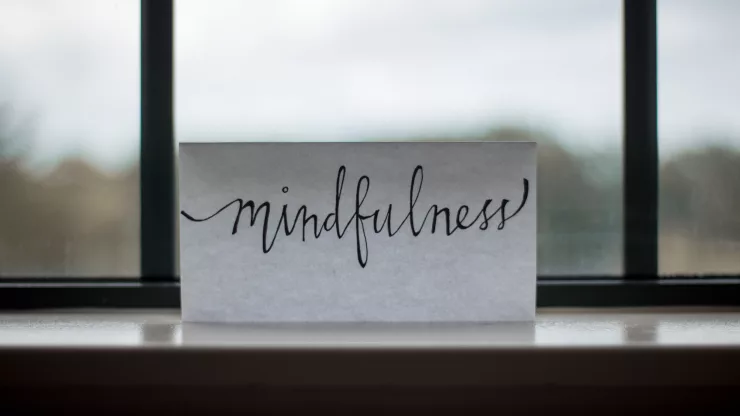Mindfulness-Based Cognitive Therapy
Mindfulness-Based Cognitive Therapy (MBCT) is a type of psychotherapy that combines mindfulness techniques with cognitive-behavioral therapy. It was developed to help people who suffer from depression, anxiety, and other mental health issues.
MBCT is based on the idea that negative thoughts and feelings can trigger a relapse, and that practicing mindfulness can help individuals become more aware of their thoughts and emotions, and learn to respond to them in a more positive way.
Jump to Section
What is mindfulness and how does it work?
Mindfulness is the practice of being fully present in the moment, without judgment or distraction. It involves paying attention to your thoughts, feelings, and physical sensations, and observing them without reacting to them.
By practicing mindfulness, you can learn to become more aware of your thoughts and emotions, and develop a greater sense of self-awareness and self-acceptance.
Mindfulness works by stimulating the prefrontal cortex, which is the part of the brain responsible for attention, decision-making, and emotional regulation. Studies have shown that practicing mindfulness can help reduce anxiety, depression, and stress, and improve overall well-being.
The science behind Mindfulness-Based Cognitive Therapy
MBCT is based on the principles of cognitive-behavioral therapy (CBT), which is a type of psychotherapy that focuses on changing negative patterns of thinking and behavior. MBCT combines CBT with mindfulness techniques to help individuals become more aware of their negative thought patterns, and learn to respond to them in a more positive way.
Studies have shown that MBCT can be effective in reducing symptoms of depression, anxiety, and stress. In one study, participants who completed an 8-week MBCT program had a 50% reduction in symptoms of depression, compared to those who did not receive the therapy.
The benefits of practicing mindfulness
Practicing mindfulness can have a range of benefits for your mental and physical health, including:
- Reduced stress and anxiety
- Improved mood and emotional well-being
- Increased self-awareness and self-acceptance
- Improved cognitive function and decision-making
- Reduced symptoms of depression and other mental health issues
How to incorporate mindfulness into your daily life
Incorporating mindfulness into your daily life can be as simple as taking a few minutes each day to focus on your breath, or practicing mindful eating by paying attention to the taste, texture, and smell of your food. Here are some other ways to incorporate mindfulness into your daily routine:
- Take a mindful walk or run, focusing on the sensations in your body
- Practice yoga or other mindful movement exercises
- Set aside time each day to meditate or practice deep breathing
- Use a mindfulness app or guided meditation to help you get started
Conclusion: Mindfulness-Based Cognitive Therapy for increased happiness and well-being
Mindfulness-Based Cognitive Therapy can be an effective tool for improving your mental and emotional well-being. By practicing mindfulness, you can learn to become more aware of your thoughts and emotions, and develop a greater sense of self-awareness and self-acceptance. If you are struggling with depression, anxiety, or other mental health issues, MBCT may be a helpful therapy to consider.
FAQ
What is the difference between mindfulness and meditation?
Mindfulness is a type of meditation that involves paying attention to your thoughts, feelings, and physical sensations in the present moment. While mindfulness is a form of meditation, it is not the only type of meditation, and there are many different ways to practice meditation.
Is mindfulness a religious practice?
While mindfulness has its roots in Buddhist meditation practices, it is not a religious practice in itself. Mindfulness can be practiced by people of any faith, or no faith at all.
Can mindfulness help with physical health issues?
Studies have shown that practicing mindfulness can have a range of benefits for physical health, including reducing chronic pain, lowering blood pressure, and improving sleep. However, it is important to consult with a healthcare provider before using mindfulness as a treatment for any physical health issues.

With a deep passion for personal development, Ben has dedicated his career to inspiring and guiding others on their journey towards self-improvement.
His love for learning and sharing knowledge about personal growth strategies, mindfulness, and goal-setting principles has led him to create My Virtual Life Coach.
Contact Ben at [email protected] for assistance.




